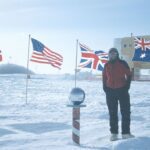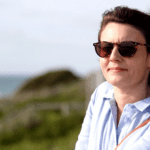Meet Associate Professor Elissa Burton – Co-Lead of the Dementia and Ageing Domain within the Curtin enAble Institute and a National Health and Medical Research Council (NHMRC) Emerging Leadership Fellow. Elissa is passionate about driving research that helps older adults age healthily and live independently, and making olive oil from scratch!
Describe your research in 3 words:
Healthy ageing, and independence
Tell me briefly about your field of research?
I help older people live independently for as long as they choose through healthy ageing strategies. My research often includes physical activity and exercise, successful ageing, reablement and restorative care, falls prevention and assisting people with mild cognitive impairment and dementia.
Earlier this year, I started a healthy ageing blog to help older people and health professionals working with them to get the latest, evidence-based information about independent living and ageing.
Research highlight
I’ve had a number of highlights throughout my career but the best is when an intervention makes a tangible difference in an older person’s life. For example, we recently conducted a study assisting older people with dementia to learn how to use a walking aid, like a stick or four-wheel walker. One gentleman wanted to walk around the block again with his dog. The physio worked with him and his dog across four sessions (6 weeks) and by the end they (the gentleman and his dog) were once again walking the streets safely. His wife was so delighted and couldn’t believe how much we had helped them all.
I’ve also had other older people go from struggling to put their clothes on in the mornings to dressing standing up and feeling very confident doing so. Our research shows that strength and balance training can really make a difference at any age.
If you could sit-in with any Faculty for a day, which would you pick?
Faculty of Science and Engineering. It would be great to brainstorm ideas for a four-wheelie walker with brakes that are easier to use for people living with dementia than the current ones available. This idea came out of a research project I mentioned above, and I think a fresh perspective from outside my field could spark some great potential solutions.
What are your passions/hobbies outside of work?
I love to travel and learn about other cultures and the food they eat. We can learn so much from others and how they do things – it’s one of the things I really enjoy about working with older people. They have so much experience and knowledge that we can tap into, and they are usually extremely honest (and funny!) because they no longer really care what others think. As a researcher, that is gold!
I also love taking my puppy dog on walks, hanging out with family and friends and going out for breakfast.
What’s a fun fact about you that your colleagues would probably not know?
Every year, I visit my parent’s place in York with the rest of the family. We pick olives all day and then crush them into olive oil. It’s hard work but I love hanging with the family and the organic olive oil is just amazing.
What’s the most valuable things you’ve learnt in your career so far?
It’s not what you do, it’s how you make people feel and the relationships with others that make it special. Working with older people, I’m often reminded that people rarely talk about your job when you die, they talk about the type of person you were and how you treated others.
What’s a piece of advice you would give to your fellow colleagues, and students alike?
Enjoy life now, plan for a great future and treat others how you would like to be treated.
This piece was featured in Impact Focus – a quarterly newsletter bringing you the latest in Curtin research. Sign up here to get it delivered straight to your inbox!



